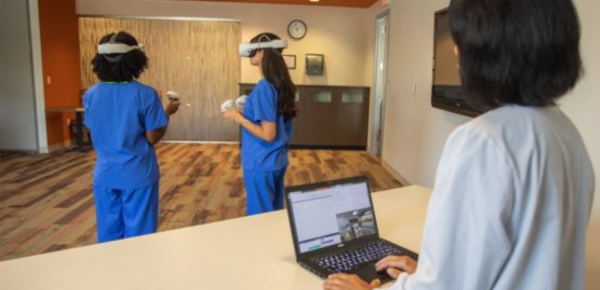
The purpose of this study was to investigate first- and second-year nursing students’ experiences with Simulation Learning System with Virtual Reality (SLS with VR) and assess change in their self-efficacy.
Here are the three main takeaways from the study:
- Students experienced a heightened sense of engagement in SLS with VR. They described VR scenarios as immersive and interactive, evoking a strong sense of presence and realism, and offering multimodal stimuli and immediate feedback to learners. For instance, “It was nice to be able to have such a realistic environment that reacted back to your choices and movements. Being to feel pulses and hear lung sounds and have the patient respond to your actions was really nice.”
- Students reported that SLS with VR afforded them opportunities to role play as nurses in authentic scenarios and practice social, cognitive, and psychomotor skills. For instance, “..Practicing communication skills with the patient and family, and practicing noticing a medication error.”
- A statistically significant improvement was found in students’ ratings of self-efficacy variables such as their understanding of content, ability to make clinical judgments, caring for patients, working in teams, and ensuring safety and quality in clinical situations.
Reference:
Shah, M., Gouveia, C., & Babcock, B. (2022, May). Undergraduate nursing students’ experiences and perceptions of self-efficacy in virtual reality simulations. In 2022 8th International Conference of the Immersive Learning Research Network (iLRN) (pp. 1-7). IEEE.